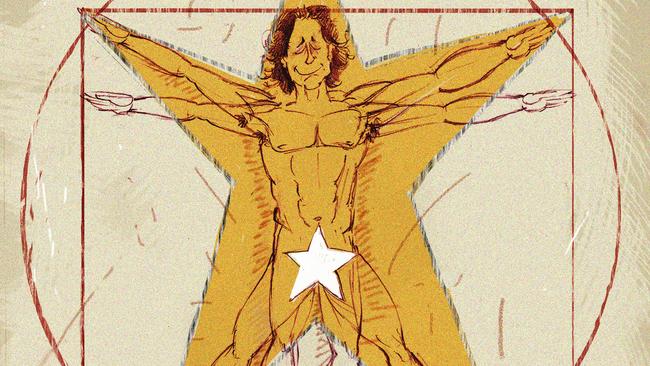
IT’S all the rage to be down about humanity. Public figures lecture us about our “eco-footprint”. Campaigners tell us that if Ebola doesn’t kill us, climate change will. But even in this era of low expectations here are 10 kick-ass things done by humanity in 2014.
10. We emailed a spanner in space: Only yesterday — well, 20 years ago — we were marvelling that we could send letters from our computers. Now, NASA has emailed an object. Someone at the International Space Station needed a new socket wrench, and NASA emailed him instructions to put into a 3-D printer and, lo, the spanner he needed came out. We finally have something very like teleportation. There is already talk of putting 3-D printers on the moon that will dig into the moon’s crust and use its raw materials to print out the beginnings of human habitats.
9. We made sperm: I know men are always making sperm but this year researchers at Cambridge University made it without sex, or just their right hands, in a laboratory by converting adult skin tissue into the precursors of sperm and eggs, and are exploring whether these can become sperm and eggs. Not only may the infertile be able to have children but mankind could soon assume mastery over evolution. Some will shout “Brave New World!” — I say so long as it’s about choice, autonomy and giving people what they want, bring it on.
8. We found loads of new fossil fuels: All that talk of peak oil, peak gas turned out to be peak bollocks. Or, as the Financial Times said in November, “Ideas about peak oil seem to have been decisively refuted.” There is now thought to be 3.3 trillion barrels of oil and 22,900 trillion cubic feet of natural gas, and 1040 billion tonnes of coal — 3 per cent more coal than we thought we had in 2011 — and new fossil fuels are being discovered all the time. It’s no accident that all that peak nonsense was refuted this year: it’s a result, in large part, of the shale revolution, and advances in fracking. We may live in what feels like post-Enlightenment times, but we’re still doing that Enlightenment thing of “wresting nature’s secrets from her grasp” (Francis Bacon).
7. We made more ninja particles: Ninja particles are as cool as they sound. As part of the explosion of research into nanomedicine — the implanting of infinitesimal machines or microbes into the body to attack disease — researchers have developed synthetic molecules that mimic our immune systems. It’s hoped these man-made molecules will soon be sent into the human body to attach themselves to certain microbes and cause them to rupture — “as if they’d been hit by an explosive shuriken (ninja star)”. These ninjas could prove deadly against antibiotic-resistant bugs and in bodies whose immune systems are rejecting newly transplanted organs. A Hollywood fantasy in the 1980s — Dennis Quaid being shrunk and sent into a human body in Innerspace — is becoming reality.
6. We found a former lake on Mars: Plucky Curiosity, the car-sized robot NASA sent on a 563 million kilometre journey to Mars in 2011, has been poking around collecting data for boffins. And its examination of the sediment in a 155km-wide crater suggests that billions of years ago it held water that could have generated Martian microbial life.
5. We made a lame man walk: “And the lame shall walk,” Christ said in Matthew 11:5, boasting of his miraculous powers. Two thousand years later scientists took cells from a paralysed man’s nasal cavity, among the most self-renewing in the body, transplanted them into his spinal cord 100 times over six months, and now he can move his legs and walk with the aid of a frame.
4. We meddled with crops to make them more nutritious: To the fury of well-off eco Westerners who never have to worry about where their next meal is coming from, by splicing genes and patching organic data — playing God — British scientists boosted a crop of camelina with omega-3. These man-meddled nutrient-rich crops can deliver much-needed vitamins and sustenance to even the world’s poorest. One of the scientists described the research centre in England as “looking like Guantanamo”: high fences, CCTV, german shepherds — a reminder of the many misanthropes ready to destroy the fruits of mankind’s nature-defying labour.
3. We continued to wage war on poverty: In December when it was revealed that 92 million Chinese still lived in poverty, Western media outlets had a field day. Yet in the past 30 years, 753 million Chinese have been lifted out of extreme poverty. Poverty is still a massive problem, but in 1990 23.6 per cent of people in the developing world were undernourished; today it is down to 11.8 per cent. Two hundred years ago, green hero and prototype modern miserabilist Thomas Malthus said there wasn’t enough stuff to sustain the 980 million people of Earth. In the past 30 years more than 980 million people have been lifted out of extreme poverty. Malthusians: getting shit wrong since 1798.
2. We continued to wage war on disease: The list of once deadly diseases now cured by mankind, in the West at least, continues to grow: tetanus, rabies, polio, yellow fever, measles, smallpox, and we may soon be able to add AIDS. Man-made drugs now largely prevent HIV from becoming AIDS, and this year deaths from AIDS were at their lowest since the peak of 10 years ago.
1. We landed a spacecraft on a comet: A spacecraft called Rosetta, launched 10 years ago, set its lander down on a comet only about 4km wide and travelling at up to 135,000km/h more than 500 million kilometres from Earth. This is like a fly landing on a speeding bullet. Why did we do this? Why not? And also because in exploring the comet’s make-up we’re exploring the original raw materials of the universe. Yet what was the big media talking point about Rosetta? The scientist’s shirt, which some silly feminists found offensive: a brutal reminder of the medievalism and miserabilism that lurk in our midst even as we do spectacular things.
All this has been achieved in an era hostile to risk-taking and suspicious of mankind, in which we’re encouraged to worship at the altar of precaution and always be safe rather than sorry. Imagine what we might achieve if we stripped away this straitjacket and unleashed the human instinct to know. That’s what I will continue to advocate in 2015 — battling against the idea that humanity is a destructive force, and reviving the view of humans as controllers of the Earth, defiers of nature and potential masters of the universe.
Brendan O’Neill is the editor of Spiked.



